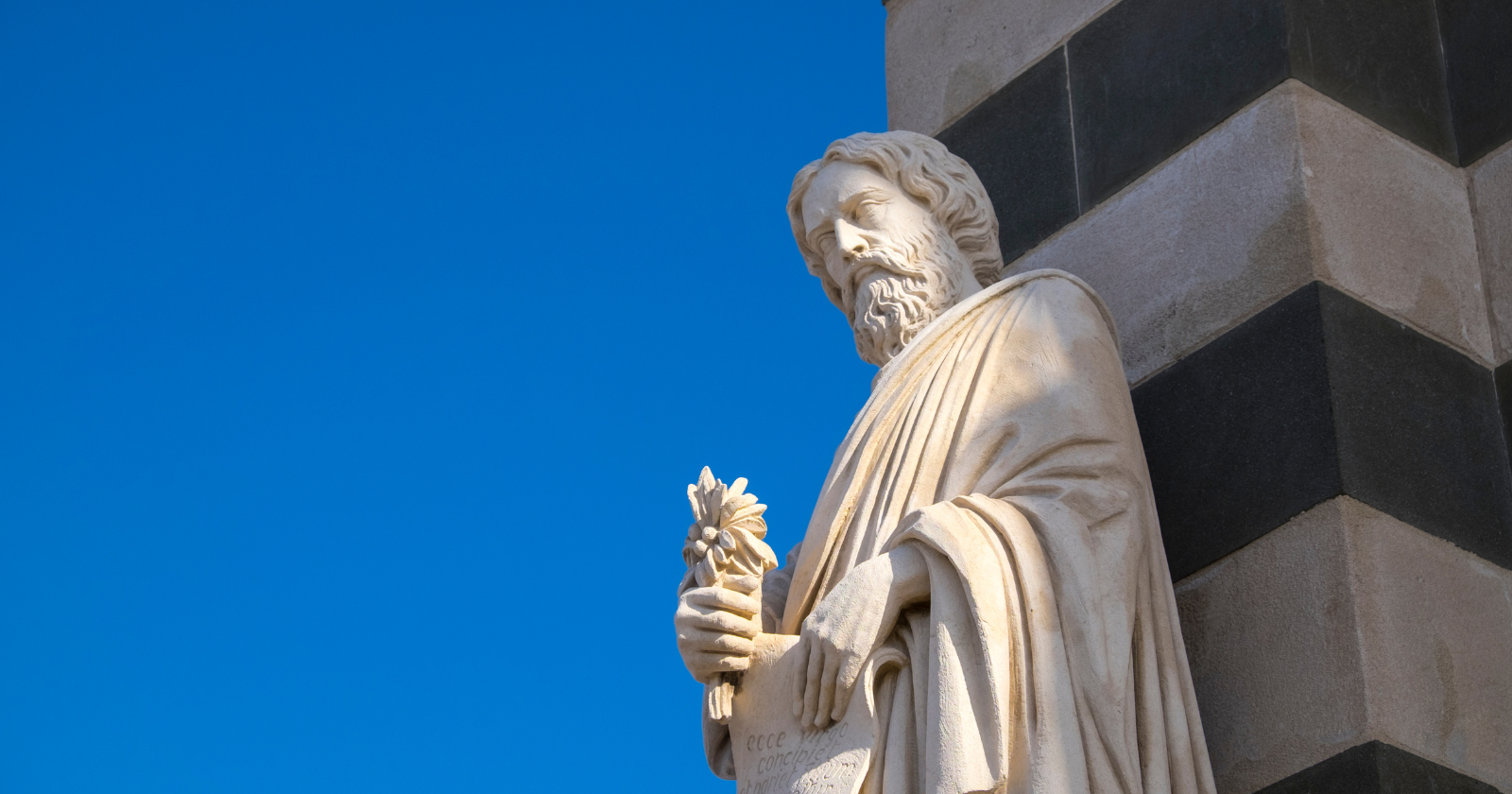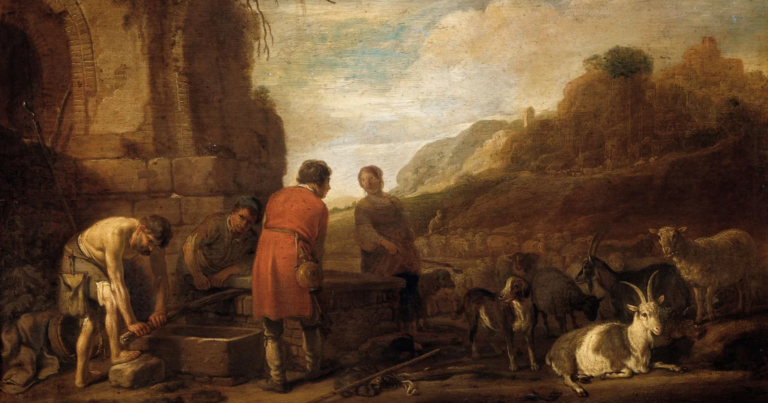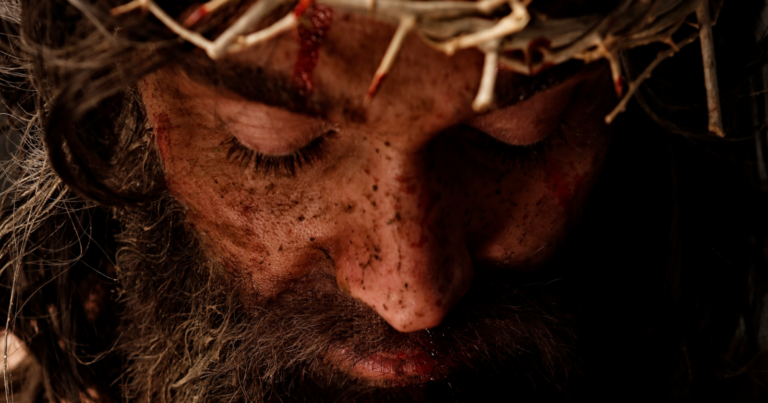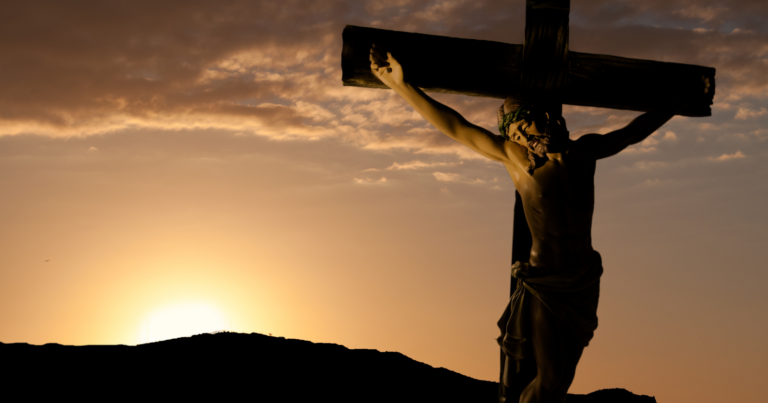“For to us a child is born, to us a son is given, and the government will be on his shoulders. And he will be called Wonderful Counselor, Mighty God, Everlasting Father, Prince of Peace.”
Isaiah 9:6
The Book of Prophet Isaiah, an integral part of the Bible, holds a prominent place in the world of prophecy.
Its profound predictions have not only come to pass but also continue to influence and shape modern society.
At its core, Isaiah’s words are a blend of judgment and hope, echoing the human quest for redemption and the divine promise of salvation.
This collection of visions, delivered by a prophet who spoke of nations’ falls and the coming of a Messiah, remains a beacon for those dealing with the complexities of faith and morality.
In this article, we will delve into the prophecies of Isaiah, shedding light on their relevance and impacts in today’s world. Let’s see how Isaiah’s timeless teachings resonate with us today.
Who was the prophet Isaiah?
The prophet Isaiah is the first of four major prophets, along with Jeremiah, Ezekiel, and Daniel, in Hebrew Scripture, our Old Testament of the Bible.
Isaiah is the first of the 16 Latter Prophets, comprising the four Major Prophets, and the twelve Prophets in the Book of the Twelve.
His era marked a time of profound spiritual and political upheaval, where he emerged as a beacon of divine truth amidst the decline of moral values.
Isaiah’s prophecies, delivered with fervent conviction, spanned the reigns of kings and the collapse of nations, offering both warnings and hope.
His role was not just as a foreteller of doom but as a messenger of salvation. After all, he advocated for a return to divine obedience to avert catastrophe.
The historical context of the Book of Isaiah
Isaiah’s ministry unfolded during an era of unparalleled turmoil for the Kingdom of Israel, which had splintered into the Northern Kingdom of Israel and the Southern Kingdom of Judah following Solomon’s reign.
As the Northern Kingdom faced obliteration by the Assyrians, leading to the dispersion of the “Ten Lost Tribes of Israel,” Isaiah’s voice echoed through the corridors of power in Judah.
The thing that propelled him to the forefront of religious reform and political advisement was his divine calling — something he received in a vision within the Temple of Jerusalem,
Therefore, Isaiah’s influence on King Hezekiah led to significant religious reforms and the safeguarding of Jerusalem against the Assyrian siege.
In essence, his prophecies, imbued with a sense of urgency, sought to steer the nation back towards the covenant with God.
Authorship and structure of the book
The Book of Isaiah is a collection of poems, generally divided into 3 main sections.
Its composition is traditionally attributed to Isaiah son of Amoz, a prophet who lived in the 8th century BCE.
However, the book’s structure suggests contributions from different periods. Here are its three main sections:
- Proto-Isaiah or the Book of Judgement (Chapters 1–39): Originating from Isaiah himself, this section contains oracles and narratives set against the backdrop of the Assyrian threat to Jerusalem.
- Deutero-Isaiah (Chapters 40–55): Written during the Babylonian exile, it offers words of comfort and hope, promising deliverance and restoration.
- Trito-Isaiah (Chapters 56–66): Reflecting on the period after the exile, it focuses on the challenges of rebuilding Jerusalem and renewing the covenant community.
Some of the most beautiful hymns in the Old Testament are found in Isaiah.
For instance, Isaiah 9:6-7 is a prophecy of the Messiah and future peace. On the other hand, Isaiah 26:19 is one of the earliest references to the afterlife. Abraham is called the friend of God in Isaiah 41:8.
Exploring Isaiah’s prophecies
The Book of Prophet Isaiah is a profound source of prophecies, which are divided into two key sections.
Among them, the Book of Judgement(chapters 1-39) primarily deals with warnings about the consequences of turning away from God. The second part, called the Book of Consolation (chapters 40-66) brings a message of hope and redemption.
This collection of prophecies reveals a future that extends far beyond his own lifetime.
1) The Immanuel prophecy
Have you ever wondered about the power of a promise?
Well, Isaiah’s prophecy of Immanuel, which means “God with us,” is one of the most profound promises in the Bible.
Found in Isaiah 7:14, it foretells the virgin birth of Jesus Christ, a sign of God’s presence and salvation.
This prophecy is not just a historical prediction. It’s a reminder to us, even today, that in times of fear and uncertainty, we are not alone. God’s promise of companionship and deliverance is as relevant now as it was centuries ago.
That’s why it’s important to let this assurance inspire you to face life’s challenges with faith and courage. And know that God’s presence is with you always.
2) The suffering servant
Isaiah chapter 53 presents the prophecy of the Suffering Servant, a passage that has captivated and comforted many through its poignant depiction of Jesus Christ’s sacrifice for humanity.
“He was pierced for our transgressions, he was crushed for our iniquities; the punishment that brought us peace was on him, and by his wounds we are healed” (Isaiah 53:5).
This prophecy is a powerful reflection of the depth of God’s love for us. It shows that through suffering and sacrifice, redemption and healing are possible.
As you reflect on this prophecy, consider the transformative power of love and sacrifice in your own life.
After all, the key message of this prophecy is to live with compassion, empathy, and a willingness to help heal the wounds of the world.
3) The peaceful kingdom
Isaiah 11:6 says:
‘The wolf will live with the lamb, the leopard will lie down with the goat, the calf and the lion and the yearling together; and a little child will lead them.'”
As you can see, this prophecy paints a vivid picture of a future where harmony and peace reign. Not surprisingly, it transcends the natural animosities and conflicts of life.
It’s a vision of a world transformed by peace and justice, where the weak and the strong coexist without fear.
Imagine a society where differences are celebrated, and unity is found in diversity. So guess what?
This prophecy encourages us to strive for a community where peace is not just a dream but a reality we actively work towards every day.
4) The fall of Babylon
“Behold, a king will reign in righteousness, and princes will rule with justice.”
Isaiah 32:1
This prophecy speaks to the heart of every person longing for peace and justice in a world often filled with turmoil and injustice.
Isaiah paints a picture of a future where the wolf will live with the lamb, and a little child will lead them (Isaiah 11:6).
This vision of a peaceful kingdom is not just a distant dream but a call to action for us today. It invites us to work towards a world where harmony and justice prevail, inspired by the promise of a righteous leader.
So, let this prophecy encourage you to be an agent of peace and righteousness in your community, reflecting the qualities of the Messiah in your daily life.
5) The Messiah’s arrival
Isaiah’s prophecies hold significant importance due to their prediction of the Messiah’s arrival.
This theme is central to Christian belief, as it foretells Jesus Christ’s birth and His role as the savior of humanity.
So, what does the Messiah’s arrival symbolize?
It’s a symbol of hope, salvation, and the fulfillment of God’s promises.
In simple terms, this prophecy is a beacon of hope, not only foretelling Jesus Christ’s birth but also highlighting the profound impact of His life and teachings on humanity.
The truth is that the essence of the Messiah’s mission is to bring peace, justice, and love into the world.
As we reflect on the arrival of the Messiah, let it renew our hope and inspire us to follow in His footsteps, spreading love, peace, and justice in our corner of the world.
Did Isaiah’s prophecies come true?
Many argue that a number of Isaiah’s prophecies have indeed come to fruition, particularly those concerning the coming of the Messiah, the suffering servant, and the eventual return and restoration severalFor instance, the prophecy of a virgin birth in Isaiah 7:14 is seen as fulfilled in the New Testament accounts of His birth.
Isaiah’s depiction of the Messiah as a suffering servant in Chapter 53 is also mirrored in the New Testament’s portrayal of Christ’s crucifixion and sacrifice for humanity’s sins.
The same applies to his visions of the restoration of Israel and Judah.
This passage parallels the historical return of the Jewish people to their homeland after the Babylonian exile.
So, in the modern world, Isaiah’s call for social justice, peace, and righteousness resonates with universal aspirations for a better society.
His vivid portrayals of a future where nations live in peace continue to inspire efforts toward reconciliation and harmony in international relations.
Isaiah’s legacy in modern faith
In conclusion, Isaiah’s legacy in modern faith stretches far beyond the pages of ancient scripture. His words are not just relics of the past but living, breathing guides that continue to inspire, challenge, and comfort countless individuals today.
- Inspiration for worship: Isaiah’s vivid imagery and profound expressions of divine majesty have enriched liturgical traditions, hymns, and prayers, helping believers connect with the transcendent aspects of their faith.
- A call to justice: Isaiah’s passionate advocacy for justice and righteousness challenges individuals and communities to reflect on their actions toward societal equity.
- Eschatological hope: The prophetic visions of peace and restoration offer a hopeful perspective on the future.
In essence, Isaiah’s impact transcends time, urging us to envision a world where faith, hope, and love prevail.
His message encourages us to strive for a society that reflects divine principles, ensuring his legacy remains a beacon of light in the journey of faith.













